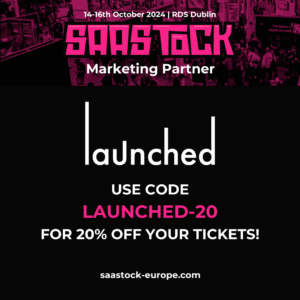Addressing ‘plastic straw syndrome’.

Each year, the Conference of the Parties (COP) acts as a bellwether for businesses looking to assess and substantiate their sustainability progress and put plans in place to continue meaningful action. Following a brief pause due to the pandemic, COP26 had many quietly optimistic about global leaders coming together to agree on policy and enact change. Many of the promises were ambitious and necessary, but ahead of this year’s conference, it will become evident which businesses got caught up in the occasion and which are serious about protecting
the planet.
Why? Amongst the debate following COP26, many fell into the trap of focusing efforts on just one area of sustainability. This is what is typically referred to as ‘plastic straw syndrome’, whereby leaders become distracted by one cause and overlook others of equal importance. In order to drive long-term and meaningful change, and embed environmental action into strategy and processes, businesses need to adopt a more holistic approach. This means taking into consideration the entirety of the business value chain from source to market, and taking measures to address its environmental impacts.
But in order to substantiate progress and deliver the necessary end-to-end visibility for comprehensive change, leaders cannot find themselves hindered by a lack of the right tools. Worryingly, 23% of business leaders have reported that they are doubtful of their ability to accurately measure their impact on the environment. Consequently, leaders cannot be sure they are taking the right steps to benefit the planet with only a partial picture of their actions and responsibilities. This can causes businesses to act on a few limited areas – aka plastic straw syndrome. But, through the right solutions and data insights, organisations can begin on the path to a more responsible future.
A barrier to comprehensive action
With many companies committing to net-zero and elaborate strategies to reduce emissions, such as carbon capture and green energy, carbon has become a key focus for businesses looking to take environmental action.
The worry is that any sort of obsession with, say, reducing the carbon footprint of mobility or energy production, will invariably overlook other key crucial factors that businesses need to be accountable for too; from biodiversity to deforestation.
This ‘plastic straw syndrome’ – as succinctly put by Professor Peter Hopkinson, Professor of Circular Economy at University of Exeter, in an SAP sustainability roundtable – often happens when governments, consumers or businesses fixate on one sustainability challenge to the detriment of the wider picture. In the business world, carbon has become the lightning rod for this sort of attention, in the same way that five years ago, the idea of replacing plastic straws with paper equivalents felt like it would solve the climate crisis.
Companies need a broader overview to have a real understanding of the impact their practices are having on both the environment and surrounding communities. This means taking into account factors such as the values and initiatives of suppliers they work with to the source of raw materials. Without these kinds of insights, businesses can’t expect to make the necessary progress to help avert global climate disaster.
Increasing visibility end-to-end
Instead of tunnelling one specific area, businesses need to employ a ‘sustainability by design’ mindset, and this starts with data. Through solutions that provide visibility of material flows, businesses can track their lifecycle from source to market. In turn, this promotes improved decision making and allows for a more targeted approach across the business value chain as leaders can embed practices from the outset to reduce waste and pollution, minimise emissions and promote a circular economy.
At SAP, we set out to not only be advocates of sustainable action, but also exemplify environmental best practice. Simply put, we are an enabler and exemplar of sustainable business. From working with partners that mirror our values and commitments, to helping customers realise more comprehensive paths to responsible business processes – we put sustainability at the heart of everything we do, which permeates throughout the business and into new policy, initiatives, and overall direction. One example of where we put this into practice in the UK is through our Waste Insights Project where we partnered with like-minded sustainability partners including, Topolytics, Coca-Cola, DS Smith and Brewdog, who analysed data across their businesses and identified areas to recapture waste materials using innovative technology that promotes transparency. Through the insights gathered, this helped to empower governments, investors, waste managers and consumer industries to define strategic priorities and implement recycling infrastructure where it’s needed most.
We also recognise that sustainability spans beyond just positive environmental change. That’s why we work with purpose-driven partners that recognise the human element of sustainable action, and set out to bring prosperity to local communities. Working with Anglian Water, we’ve delivered workshops on ‘procurement with purpose’ and ensuring that the supply chain is delivering certified social impact. Through this, we set out to establish best practice on meeting net-zero and biodiversity targets, whilst also supporting greater social mobility to build the next generation of talent.
A road to responsible business
As we approach this year’s conference, there is no better time for businesses to reflect on where they are and where they need to be with their sustainability action. While building a sustainable future is no easy feat, organisations can make sure they are setting themselves up for success by overcoming plastic straw syndrome. By embracing the data at their fingertips, businesses can have complete visibility into their end-to-end processes, measure and track progress across the value chain, and better substantiate their environmental credentials. This data can then be used to level-up sustainability targets, which act as a barometer for future success. In my view, that’s how businesses take comprehensive action, consign plastic straw syndrome to the past and establish themselves as credible voice in each
COP debate.

